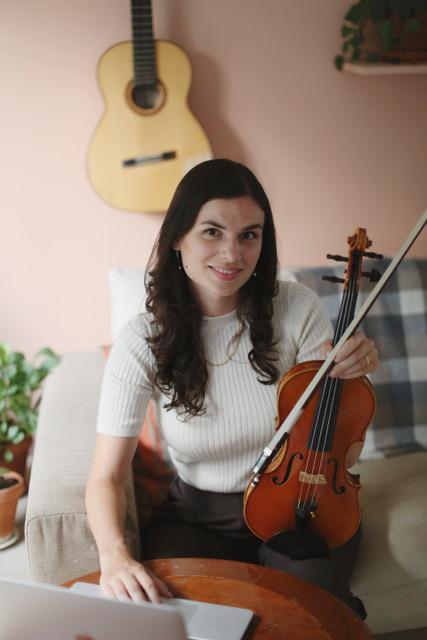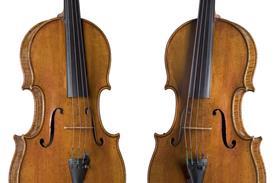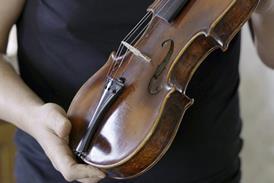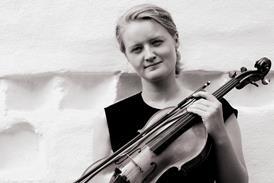Alongside regular lessons and practice, Julia Reddy shares four ways to inject more music into your daily life for adult students

Read more Featured Stories like this in The Strad Playing Hub
If you’re an adult amateur classical musician who wants to pursue a musical education, your options are limited. You may contact your local after-school programme for lessons, and later find yourself standing next to an eight-year-old performing Twinkle Twinkle in your first end-of-term recital, questioning the progression of events that led to this situation. It’s not exactly what you had in mind when you decided to start learning an instrument, yet many of my adult violin students have shared similar experiences prior to joining my studio.
As a violin teacher who specialises in working with adult amateur violinists, I encourage my students to seek opportunities outside of our private lessons and practice to immerse themselves into the music world.
So, how can we create a more musical lifestyle? For inspiration, let’s take a look at a typical week as a music major. In the morning, I’d do my warm ups and then go to my lecture-style classes, a mix of music theory, ear training, and music history. Orchestra rehearsal followed. In the afternoon, I’d have a lesson, quartet coaching, and then a bit more practice time. In the evening, I may meet up with some friends to see a concert.
These ’extracurriculars,’ theory, listening, rehearsal, and performance, are not just an important supplement to your music lessons— they’re a requirement in a pre-professional music training.
As a non-professional, however, these opportunities are something you need to go out of your way to create. But the effort is worth it. The more connections you can make with your instrument, the more meaningful the learning process becomes.
Here are some ideas:
1. Research
Music students are required to complete several years of theory, ear training, and music history courses.
These days, accessing this information is easy and you can learn from the comfort of your couch. You can start watching some YouTube videos or a documentary series (such as Michael Tilson Thomas’s Keeping Score). Yale has an open music theory course that is available for free. If you have more time, you can sign up for a music theory or history course at a local community college— bonus, you may meet some people to help you out with my third tip below.
Read books about your instrument, and biographies of the your favourite composers. Listen to podcasts about classical music (such as my podcast, Violin Class if you’re a violinist), and follow your favourite musicians on social media– many artists now share tips and behind-the-scenes glimpses into their creative process.
2. Listen
One of the perks of being a music student is that you get to attend a lot of concerts. As a music student, I even ushered for a chamber music festival so I could see the performances for free. By watching great musicians perform, you learn about stage presence, projection, and interpretation.
Attend concerts at your local symphony as regularly as you can, and if that’s not accessible, check out the music programmes at your local university or conservatory — they often have free or inexpensive recitals and orchestra concerts. You can even get your family involved– most symphony orchestras have family-friendly concerts.
Read: Setting up the left hand: a guide for beginner violinists
Read: The dark side of being an adult violin beginner: Rachael Ridge
3. Rehearse
Playing with others is often the whole reason musicians do what they do. If you’re an intermediate-advanced adult amateur player with a bit of time to commit, consider joining a community orchestra. This is one of the only formal settings designed specifically for adult learners, and you’ll get to play music with passionate people at all levels of experience.
Community orchestras often play challenging repertoire, so it may be a few years before you have the level to join. In the meantime, trad sessions or jams are another idea.They are often more accessible for beginners, and if you’re a classical player, will teach you how to learn by ear and the rules around other styles of music.
Outside of these organisations, the best thing you can do is play with friends. Even if you don’t know anyone with whom you can play a string quartet, you surely have an acquaintance that plays some piano, guitar, or other instruments. Get creative, and find some music to play together, classical or otherwise.
4. Perform
Every time you get on stage and perform, you learn a bit more about your playing. Performing is an important part of developing as a musician, and even if you don’t plan on ever performing professionally, it’s worth trying on a smaller scale.
You can play for friends, at a local open mic, some holiday tunes at your next family gathering, or even try busking. Performing is a skill separate from playing the instrument, which is why in my studio I have a regular ’studio class’ where we practise just that.
By incorporating these four elements into your daily life, you can design a curriculum for your musical education that goes beyond the practice room. While you may not have access to a conservatory environment, with a little creativity and dedication, you can use these tips to help keep you inspired in your practising.
If you want more tips on learning music, tune into the Violin Class podcast, where I share practice strategies, technique tips, and other advice for adult learners.
Read: 10 tips on how to stay motivated as an adult beginner violin student
Read more Featured Stories like this in The Strad Playing Hub
The number one source for playing and teaching books, guides, CDs, calendars and back issues of the magazine.
In The Best of Technique you’ll discover the top playing tips of the world’s leading string players and teachers. It’s packed full of exercises for students, plus examples from the standard repertoire to show you how to integrate the technique into your playing.
The Strad’s Masterclass series brings together the finest string players with some of the greatest string works ever written. Always one of our most popular sections, Masterclass has been an invaluable aid to aspiring soloists, chamber musicians and string teachers since the 1990s.
American collector David L. Fulton amassed one of the 20th century’s finest collections of stringed instruments. This year’s calendar pays tribute to some of these priceless treasures, including Yehudi Menuhin’s celebrated ‘Lord Wilton’ Guarneri, the Carlo Bergonzi once played by Fritz Kreisler, and four instruments by Antonio Stradivari.





































No comments yet